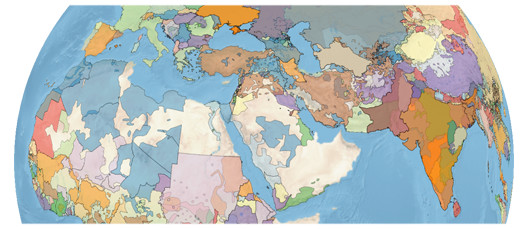Release of the EPR Family 2014
The International Conflict Research group at ETH Zürich announces the release of the most current update of the Family of Ethnic Power Relations (EPR) data sets, supported by the R4D project.

The Family of Ethnic Power Relations (EPR) data sets is a tightly integrated universe of data sets that provides data on ethnic groups’ access to state power, their settlement patterns, links to rebel organizations, transborder ethnic kin relations, and intra-ethnic cleavages.
The new version not only extends the data sets’ temporal coverage from 2009 to 2013, but it also offers several new features, such as a new measure of regional autonomy that is independent of national-level executive power and a new data set component coding intra-ethnic identities and cleavages. The update process drew on the in-depth knowledge of a large number of country experts and research assistants, and, in the case of the ACD2EPR data, of the UCDP team at Uppsala University. Moreover, the 2014 version was the first to benefit from the regional expertise of the R4D partner institutions in Guatemala, Zambia, Egypt, Ghana, and India.
The publication of the updated EPR Family coincides with the release of a new version of the GROWup (Geographical Research on War, Unified Platform) online platform. The new platform offers a revamped user interface, which makes it easy to visualize and download information on politically relevant ethnic groups, their settlement areas, and their access to state power from 1946 to 2013. In addition, the new EPR Atlas, accessible through GROWup, provides detailed documentation of each country coding.
For more information and to access the data, visit the GROWup web platform. See also Vogt, Manuel et al. 2015. "Data Feature Integrating Data on Ethnicity, Geography, and Conflict: The Ethnic Power Relations Dataset Family". external page Journal of Conflict Resolution 59 (7), 1327-1342.